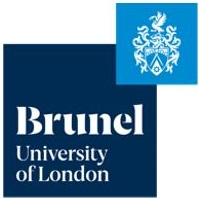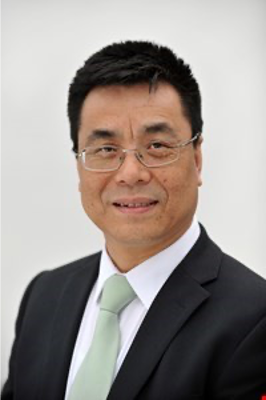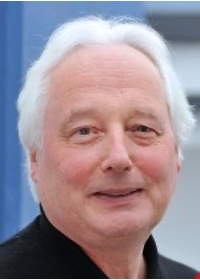
Brunel University of London
Our Work
Metals are fuel for economic growth and the backbone of the manufacturing industry. However, production of 2 billion tonnes of metals every year consumes 12% of the global primary energy and accounts for 15% of the global CO2 emission. Therefore, we cannot achieve Net Zero by 2050 without decarbonising metals.
To address the critical challenge of sustaining economic growth while protecting our environment, our vision is full metal circulation (FMC). FMC aims to meet the global demand for metals by using only secondary metals, hence shifting away from environmentally detrimental primary metals. To deliver FMC, we have developed a systems approach, including narrowing the loop (use less), slowing down the loop (use longer) and closing the loop (use again).
Our research activities cover all three of these approaches:
- Closed-loop recycling of aluminium to close the loop: Metals are in principle infinitely recyclable at a small fraction of energy and CO2 compared with primary metal production. Our research covers scrap sorting technologies for separating wrought and cast aluminium scraps; melt purification technologies; developing resilient alloys (impurity tolerant), novel solidification processes for elimination of harmful effect of impurities and inclusions.
- Developing life extension technologies to slow down the loop: Metal fatigue accounts for over 90% of mechanical failure of metallic components. To significantly extend component service life, we have developed a novel concept of “metal health service (MHS)”, in which fatigued component can be diagnosed, rejuvenated, recovered and repaired. Under MHS, we are developing technologies for diagnosing, rejuvenating, recovering and repairing metallic materials, components and products (MCP).
- Developing manufacturing technologies for narrowing the loop: We develop manufacturing technologies for reducing materials input, such as: (1) advanced casting technologies for net shape components of consistent high performance; (2) physical treatment technologies for making cast components have longevity; and (3) restoration of “retired” high value components for reuse.
- Servitisation of metals/components/systems to enhance FMC: We develop servitisation-based circular business models (CBMs) that create economic and competitive incentives for dematerialising products (narrowing), designing long-lasting products (slowing) and facilitating remanufacturing and recycling (closing).
- Changing human behaviour to deliver the long-lasting impact of FMC: Human behaviour (or mindsets) will ultimately determine how far we can go with sustainability. This research will focus on identifying and delivering critical public mindsets to maximise circularity beyond the technology push and business model innovation.
- A systems-based approach to metals value chains: This is an integrating research activity, which aims to develop a systems-based approach to mapping and analysing resource management specifically for metals. The developed approach will then be used to identify barriers and key levers for driving FMC.
Our Plans
Brunel University London and BCAST’s long-term vision is to enable full metal circulation, where the global demand for metals is met primarily through the reuse, remanufacture, and closed-loop recycling of secondary metals. Our strategy focuses on developing recyclable alloy systems, sustainable processing technologies, and nucleation-centred solidification science to underpin this transition.
Looking ahead, BCAST will continue to strengthen fundamental research while expanding industrial collaboration, particularly through strategic partnerships that translate innovation into real-world applications. A world-class training environment — including a planned Centre for Doctoral Training in liquid metal engineering — will ensure the next generation of metallurgists are equipped to lead this transformation.
Team

Professor Zhongyun Fan
Director of BCAST at Brunel
Professor Zhongyun Fan is Director of BCAST and Professor of Metallurgy at Brunel University London. He is internationally recognised for his pioneering work in liquid metal engineering and solidification science, and has led major collaborative projects with industry to support sustainable light metal technologies. His vision for full metal circulation underpins BCAST’s research and training strategy.

Professor Geoffrey Scamans
Head of industrial research
Professor Geoffrey Scamans is Professor of Metallurgy at Brunel University and Chief Scientific Officer at Innoval Technology. With a background in aluminium research spanning over five decades, he has played a key role in advancing BCAST’s work on sustainable light metal processing. He has published more than 160 papers on the microstructure, performance, and recycling of aluminium alloys, and brings extensive industrial insight to the centre’s mission of enabling full metal circulation.
Latest Reports
Webinar: Closing the Circle – Embedding UNRMS in the Circular Economy
By Craig Withers, University of Exeter. Webinar: Closing the Circle – Embedding UNRMS in the Circular Economy We are pleased to announce our upcoming international webinar, Closing the Circle – Embedding UNRMS in the Circular Economy, which will explore how the United...
UK ICE-SRM at UNECE Resource Management Week 2025, Geneva
By Craig Withers, University of Exeter. The UK ICE SRM team had a strong and diverse presence at the UNECE Resource Management Week in Geneva this year from 24th till the 28th of March. The event hosted and heard from international experts, policymakers, researchers,...




